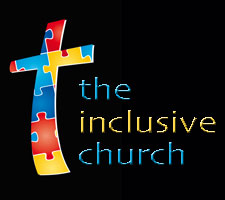Creating a Special Needs Ministry Budget
Recently, a special needs ministry leader asked me the following question:
What kind of budget do we need to start a successful Disability Ministry and continue its growth over the next 10-15 years?
As a natural planner, I’m a little shocked at my answer to part of this question:
Pondering a ministry’s growth and budget 10-15 years out is probably planning a little too far out.
This week is the 10-year birthday of Facebook. No one could have predicted Facebook’s impact on society a decade ago. Social media has changed the landscape of virtually every industry and even the way people relate. With the current speed of change, a supporting ministry inside a church may be more productive to develop goals within the five-year range. Many changes can impact a special needs ministry, including:
Change of church’s senior leadership. All ministries, including a church’s special needs ministry, should support senior leadership’s vision for the church. A church’s big-picture mission will have daily bearing on how each ministry does its work. With an average pastor’s tenure of four years in mainline denominations, odds are high there will be turnover in your church’s leadership within the next decade.
Change in local demographics. Several years ago a sleepy county in a southern U.S. state appointed a new school superintendent. Swift changes were implemented, shifting the somewhat rural county’s reputation from being culturally backwards to becoming educationally progressive. In fewer than five years, most local businesses made at least one change to the products they offered or the services they provided in order to match the needs of young families, who were moving in by the droves. And as you might guess, area churches quickly reallocated resources to meet staffing and programming needs associated with this exploding demographic. You can see where a school system’s changes regarding special needs accommodation can have a trickle down effect on nearby churches.
Change in ministry trends. Recently I sat in on a brainstorming session for family ministry leaders who met to discuss the future of summer programming. Children’s pastors and student ministry leaders shared ideas for how their churches were adjusting programming to meet the needs of students with two working parents, split custody households, and hectic summer schedules. I had a front row seat, watching in real-time, a group of influential church leaders transform the old model of Vacation Bible School into a ministry experience relevant to today’s culture. This change and others will have direct bearing on a church’s special needs ministry.
By design, the special needs ministry should be reactive to the plans of other ministries. The first priority of a special needs ministry is to facilitate accommodation and inclusion into existing church programming and scheduled ministry events. As a result, decisions made by other ministries will affect the special needs ministry. For example, a church’s decision to shift away from a Sunday school schedule and to move toward a small group model of discipleship will likely consume a special needs ministry team for a period of time, as they figure out new logistics for inclusion. Really, the best guidance for future planning is to look inside your own church, asking the leaders who shape the church’s programming. Based on their advice, work to create a handful of specific goals for the next three years. Then, identify one or two bigger dreams for the five-year range, making sure they compliment leadership’s five-year objectives.
Below are a list of budgetary considerations for a special needs ministry. For a new ministry or smaller church, please don’t let this list overwhelm you. Instead, give God the opportunity to show His presence and bless your church. Proceed on faith, but be smart. Few of the below suggestions are mandatory, they’re just ideal. And if your church has the means to provide the “ideal”, start small. Burnout will sneak up on you (or your volunteers) if you don’t pace the growth of the ministry. Once your families are successfully incorporated into regularly scheduled programming, then you can begin to think about broader opportunities for care and outreach.
Budget Considerations for a Special Needs Ministry
Paid Staff – Conducting an intake interview with each family and coordinating an individual’s placement may require an investment of several hours. In addition, ministry needs often surface in the course of intake conversations, quickly requiring a response beyond the availability of a volunteer coordinator. As the number of participants with special needs and programming environments grow, so too does the need for additional paid hours.
Background Checks – Background checks should be performed on every adult volunteer and staff person that has any contact with ministry participants. This is not optional and there is a fee required by companies that perform the background checks. Don’t forget to create budget to renew your background checks on existing adult helpers who were checked in the past. (Most churches re-run the check every two years.)
Training Events – Churches should plan to host a major volunteer training event annually. Many churches also have smaller training events on a semi-annual or quarterly basis to bring new ministry helpers up to speed. Consider any costs related to providing childcare, food, printing costs for training materials, game prizes (make it fun!) or props needed for the training event(s).
Leader Development – Churches may want to purchase and make available a handful of resources to help volunteers. In addition, several churches have created a budget to send designated leaders annually to an outside ministry conference or special needs-related training. (Don’t forget costs associated with regular CPR training, etc.)
Volunteer Support – It’s smart to designate some budget dollars for volunteer appreciation gifts and other volunteer support costs. Providing an occasional breakfast for ministry servants or giving a Christmas gift (e.g. coffee shop gift card) are great ways to say “thank you”. Always keep some money on reserve to cover costs for sending flowers or a prepared meal to a volunteer who is hospitalized, goes through the death of a loved one, etc.
Curriculum & Class Materials – It is ideal when a church can contract a child life specialist, a speech pathologist, or other special education professional to make a handful curriculum modifications or additions for ministry participants. While curriculum modifications belong in the “bonus” category, it is a wonderful thing for a church to invest in the spiritual development of their participants with special needs. A few changes to planned activities or the way the Bible story is shared may enable full participation for a student with learning differences. Along the same lines, consider additional needs in terms of music and craft supplies for the ministry environment.
Snacks – Some churches keep a stash of (pricey) gluten-free or GFCF snacks on hand, as these diets are common among students with special needs.
Sensory-Friendly Toys & Equipment – Many churches have a dedicated space with products and activities designed to engage the child with a broad range of special needs.
Designated Space – We are seeing a growing number of churches design space with special needs in mind. This area may include a room set up with any or all of the following:
- Special lighting
- Television to provide live feed from the worship center.
- Built-in structures (e.g. in ceiling) for installing sensory equipment
- Added security features to prevent elopement
- Easy entry from handicap parking or drop-off area
- Large bathroom with space for changing table and a wheel chair
Paid Childcare – During parent support groups or special events it may be necessary to pay childcare workers. (This is common practice in children’s ministry.) You may also elect to utilize paid childcare during respite events, especially for medical or special education professionals.
Reimbursed Childcare – Occasionally a child or student is best served inside their own home by a care provider with whom they are already comfortable. It is ideal when the church can subsidize the added costs a family may incur for childcare services so that they can attend church themselves.
Budget for Care Ministry and Outreach
Parent Support Groups – A number of churches host life-changing parent connection groups for the families in their special needs ministry. In addition to potential childcare costs, consider added expenses due to expanded staffing needs, curriculum/material, food, guest speakers and facilities costs.
Respite Events – Some churches offer parents night out events for special needs families. These events require their own volunteer training, event activities, food, etc. Many churches contract a medical professional to remain onsite and provide services for the duration of the respite event, handling toileting issues, dispensing medication, and addressing medical concerns as they arise. (This is a wise and recommended practice.) In addition, some churches have made the decision to invest in the parents’ date night experience while their children are being cared for by providing tools for marriage enrichment.
Side story: A special needs ministry leader I interviewed several years ago recalled her difficult decision to require RSVP’s and set a limit to 20 families for parents night out. Capping respite participation drew flack initially, but it kept the church’s underpaid staff and inexperienced volunteers from becoming overwhelmed. Her wisdom preserved the integrity and longevity of that church’s ministry, largely because she gained the trust of her church’s leadership with her conservative approach. That trust paid off when she asked for additional resources to grow the special needs ministry. (And by the way, the kids who came to those respite events received wonderful, individualized attention because volunteers had the margin to spend quality time with them.)
Summer Experiences – For a church that offers a Vacation Bible school or day camp for their typically developing students, the special needs ministry may provide assistance to make those experiences more inclusive. For summer experiences like vacation Bible school, a church may hire a bonded nurse through a third-party staffing agency. This trained and bonded healthcare provider could perform all duties associated with toileting and diapering. These considerations are good for events like respite, where parents do not remain onsite and where the duration of care is longer than Sunday morning programming.
Fore more help getting started, checkout Leading a Special Needs Ministry: A Practical Guide to Including Children and Loving Families (The reThink Group, 2013).
Like this post? See Rules for Repost




Literally perfect timing. We just started our special needs ministry at the new year and I have been working on trying to create a budget this morning. I have been listing wants and needs and their prices and decided to wander over to The Inclusive Church. This helps a LOT. Thanks!
Courtney – I just saw your comment. Thanks so much! Thrilled it has been helpful.